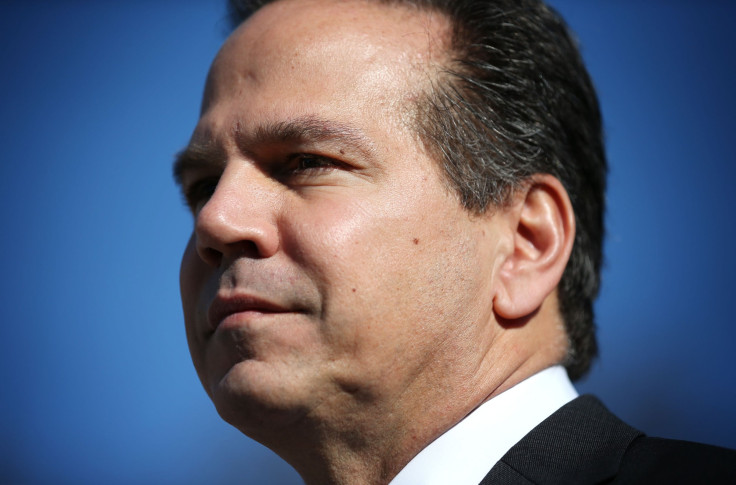Latest Election Results: Congressman Calls On Electoral College To Consider Russian Hacking Revelations

A Rhode Island congressman says the Electoral College should consider revelations that Russia tried to influence the outcome of the U.S. election when votes are cast next week.
Rep. David Cicilline, D-R.I., told Politico Saturday the 538 electors “have the right” to consider whether “foreign interference in the United States presidential elections may have influenced the final result.”
The comment comes as a group calling itself the Hamilton Electors tries to influence 37 GOP electors to vote for a Republican other than Donald Trump Dec. 19 to deny him the presidency.
Documentarian Michael Moore last week described the Electoral College as a stopgap meant to keep a madman from the White House. He speculated “something crazy” might happen before the Jan. 20 inauguration that would keep Trump from becoming president.
In an interview on “Late Night With Seth Meyers” Wednesday, Moore pleaded with Trump to stop his tweeting and attend daily national security briefings instead — something Trump told “Fox News Sunday” he doesn’t need because he’s “too smart” for them.
"On our behalf, you have to pay attention. You have to attend these briefings,” Moore pleaded. “This is our country, this is our security, this is our safety – you're horsing around with all this nonsense. And you're not doing your No. 1 job, and the No. 1 job of the president is to make sure that the country is safe."
The liberal website PoliticsUSA said Trump’s refusal to attend the daily briefings is grounds for the Electoral College to nullify the election because it indicates Trump “intends to violate his oath of office” to “preserve, protect and defend the Constitution of the United States.”
Trump currently leads Hillary Clinton 306 electoral votes to 232 but trails Clinton by 2.8 million popular votes.
Ten states and the District of Columbia have signed onto the National Popular Vote Interstate Compact to award all of their electoral votes to the winner of the national popular vote — no matter who won their states. The only problem with that is that the states subscribing to the proposal — California, Hawaii, Illinois, Maryland, Massachusetts, New Jersey, New York, Rhode Island, Washington, Vermont and the District of Columbia — already were committed to Clinton.
Two lawsuits have been filed to try to block Trump’s path to the presidency, the most recent one Friday in California, by nullifying state law requiring electors to vote for the most popular candidate in their state. Twenty-nine states have such laws.
One Republican in Texas last week said he does not intend to vote for Trump.
The most electors in history to buck their states’ votes were six Democratic-Republicans in 1808 who voted against James Madison. So far, 10 electors this cycle have said they will break ranks.
Sen. Dianne Feinstein, D-Calif., said last week Clinton has accepted the outcome of the election.
© Copyright IBTimes 2025. All rights reserved.






















